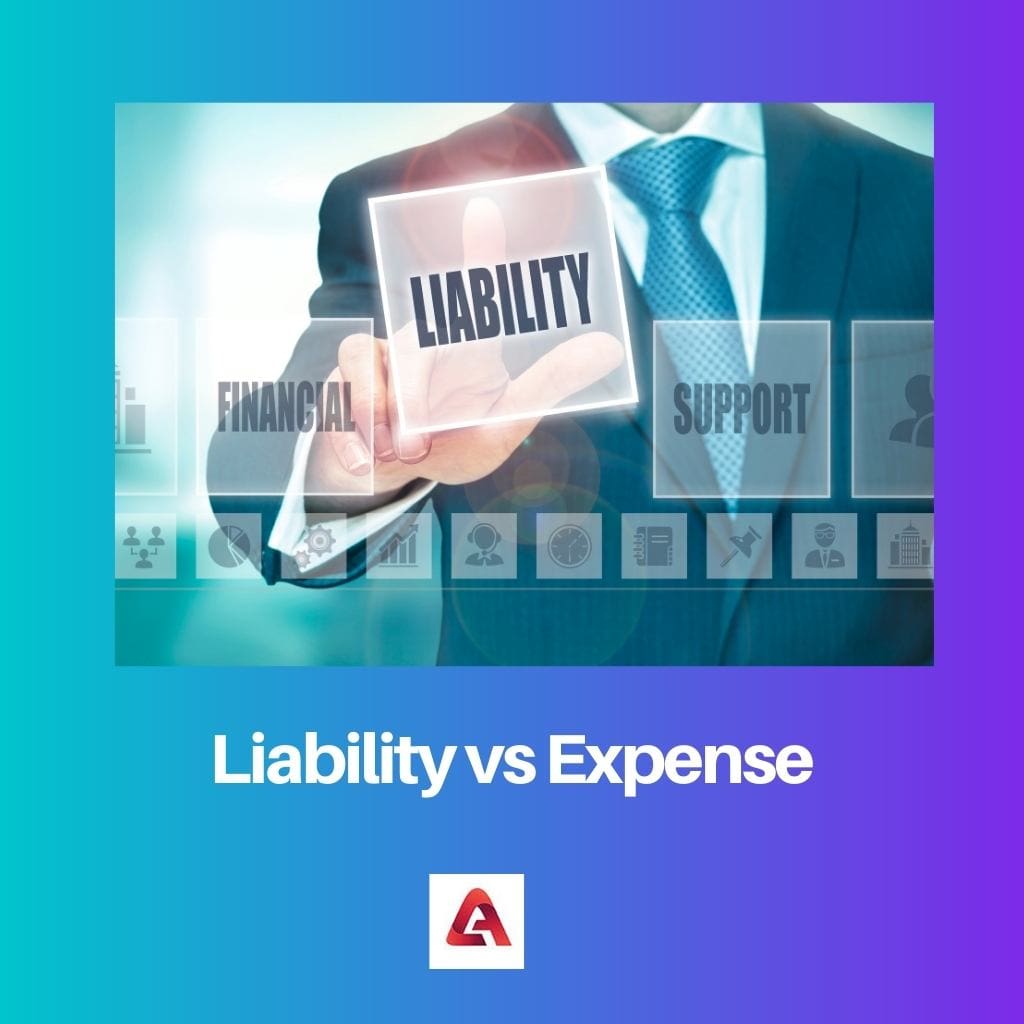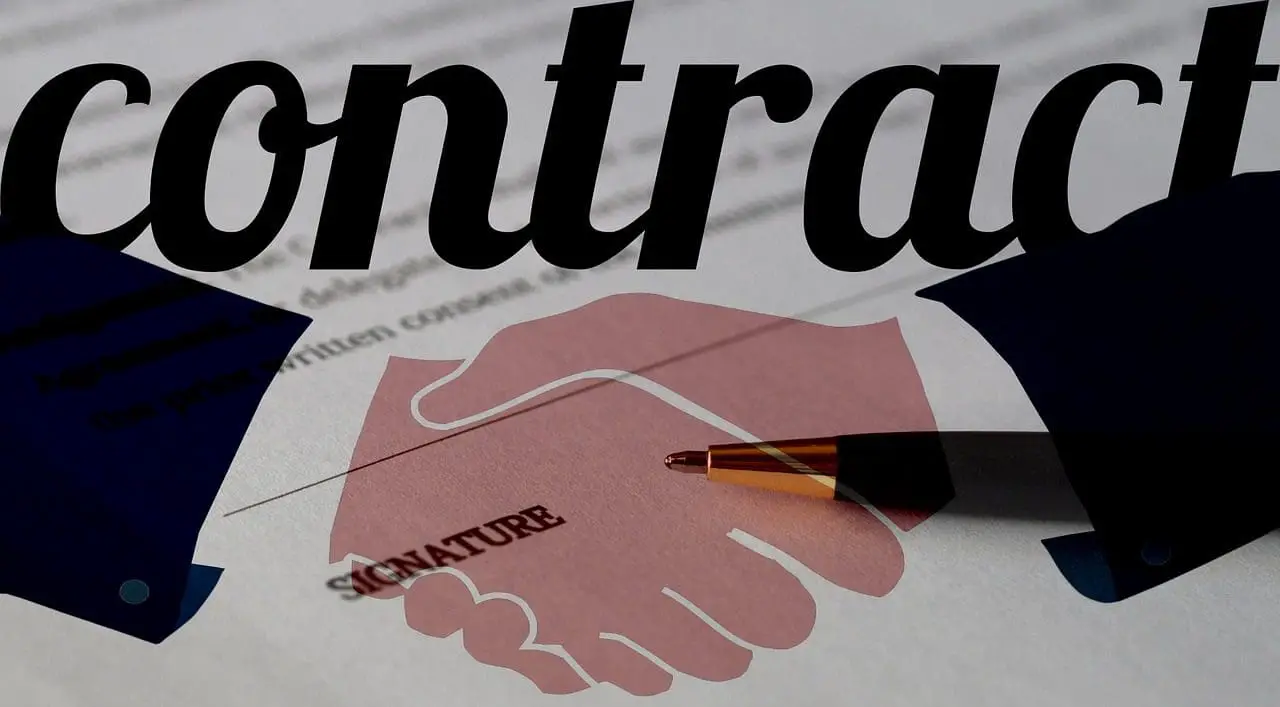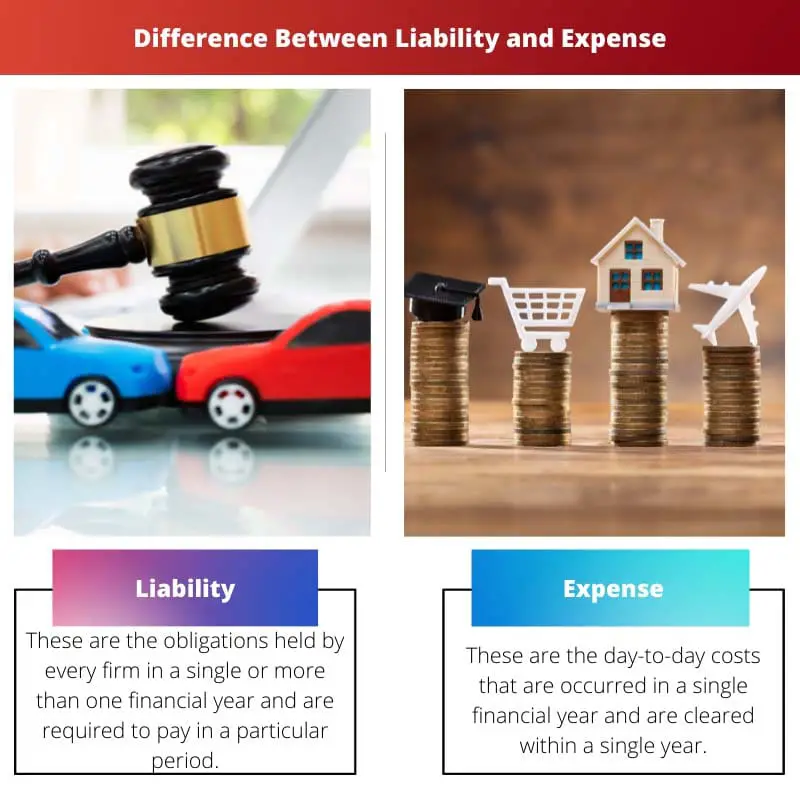Liability refers to financial obligations or debts a company owes to external parties, such as loans or accrued expenses. It reflects the company’s future commitments. On the other hand, an expense is the cost incurred in the current period for generating revenue, reducing a company’s net income.
Key Takeaways
- A liability is a financial obligation or debt that a company owes to others. In contrast, an expense is the cost of goods or services consumed to earn revenue.
- Liabilities are reported on the balance sheet, while expenses are reported on the income statement.
- Liabilities can impact a company’s financial health long-term, while expenses are short-term and can fluctuate based on business operations.
Liability vs Expense
Liability is a financial obligation of the company to pay back a loan, taxes, salaries, or other legal or financial obligations to another party, they can be short or long-term. Expenses are costs incurred by a company in generating revenue, including salaries, rent, utilities, and marketing.

Comparison Table
| Feature | Liability | Expense |
|---|---|---|
| Definition | A legal obligation to pay a debt or deliver something of value to another party | The cost of running a business incurred to generate revenue |
| Nature | Obligation | Cost |
| Timing | Can arise from past events and become due in the future | Incurred during a specific accounting period |
| Impact on Financial Statements | Reported on the balance sheet | Reported on the income statement |
| Effect on Net Income | Does not directly affect net income | Reduces net income (revenue minus expenses) |
| Examples | Accounts payable, loans, accrued salaries | Rent, salaries, utilities, cost of goods sold |
What is Liability?
Liabilities represent the financial obligations and debts of an individual, company, or organization. These obligations arise from past transactions or events, and they require future sacrifices of economic benefits. Liabilities are a crucial component of the balance sheet, providing insights into an entity’s financial health and its ability to meet its short-term and long-term obligations.
Types of Liabilities
1. Current Liabilities
Current liabilities are obligations that are expected to be settled within the normal operating cycle of the business or within one year, whichever is longer. Examples include:
a. Accounts Payable
- Amounts owed to suppliers for goods and services.
b. Short-Term Loans
- Borrowings that are due for repayment within the next 12 months.
c. Accrued Liabilities
- Expenses that have been incurred but not yet paid, such as salaries and taxes.
2. Long-Term Liabilities
Long-term liabilities are obligations that extend beyond the current operating cycle and are not due for settlement within the next year. Common examples include:
a. Bonds Payable
- Long-term debt securities issued by a company.
b. Mortgages
- Loans secured by real estate, with a repayment period exceeding one year.
c. Pension Obligations
- Future payments to employees as part of retirement benefits.
Measurement and Recognition
Liabilities are measured at their fair value, which is the amount required to settle the obligation. They are recognized in the financial statements when there is a probable future sacrifice of economic benefits and the amount can be reliably estimated.
Importance of Liabilities
Understanding liabilities is crucial for various stakeholders:
- Investors: Assess the company’s ability to meet its financial obligations.
- Creditors: Evaluate the risk associated with lending money to the entity.
- Management: Make informed decisions about the company’s capital structure and financial strategy.

What is Expense?
An expense refers to the costs incurred by an individual, business, or organization in order to generate revenue or achieve specific objectives. It is the outflow of resources, in the form of money, to pay for goods, services, or obligations.
Types of Expenses
1. Operating Expenses
These are ongoing costs necessary for the day-to-day functioning of a business. Examples include rent, utilities, salaries, and office supplies.
2. Cost of Goods Sold (COGS)
COGS represents the direct costs associated with the production of goods or services a company sells. It includes raw materials, labor, and manufacturing overhead.
3. Non-Operating Expenses
Non-operating expenses are costs not directly related to the core business activities. Interest expenses, taxes, and losses from the sale of assets are common examples.
4. Fixed Expenses
Fixed expenses remain constant regardless of the level of production or sales. Lease payments and insurance premiums are examples of fixed expenses.
5. Variable Expenses
Variable expenses fluctuate based on production or sales volume. Examples include raw materials, commissions, and shipping costs.
6. Capital Expenses (CapEx)
Capital expenses involve the acquisition of assets with long-term value, such as buildings or machinery. These costs are depreciated over time.
Importance of Tracking Expenses
Effectively managing and tracking expenses is crucial for financial stability and strategic decision-making. It allows individuals and businesses to analyze spending patterns, control costs, and make informed budgetary decisions to achieve financial goals.

Main Differences Between Liability and Expenses
Liabilities:
- Definition:
- Liabilities refer to the obligations or debts that a company owes to external parties.
- They represent the financial responsibilities a company has to fulfill in the future.
- Nature:
- Liabilities are future-oriented and reflect amounts owed at a specific point in time.
- Types:
- Common types include accounts payable, loans, bonds, and accrued liabilities.
- Recording:
- Liabilities are recorded on the balance sheet, which is a snapshot of a company’s financial position at a specific moment.
- Timeframe:
- Liabilities are categorized as short-term (due within a year) or long-term (due beyond a year).
Expenses:
- Definition:
- Expenses represent the costs incurred by a business in its day-to-day operations to generate revenue.
- Nature:
- Expenses are incurred as part of normal business activities and are associated with the revenue-generating process.
- Types:
- Common types include salaries, utilities, rent, and cost of goods sold (COGS).
- Recording:
- Expenses are recorded on the income statement, reflecting the costs incurred during a specific period.
- Timeframe:
- Expenses are associated with a specific accounting period (e.g., monthly or annually).
- Impact on Profit:
- Expenses directly reduce the company’s profit, as they are subtracted from revenue to calculate net income.
- Recognition:
- Expenses are recognized when the goods or services are consumed, regardless of when the payment is made.

Last Updated : 02 March, 2024

Chara Yadav holds MBA in Finance. Her goal is to simplify finance-related topics. She has worked in finance for about 25 years. She has held multiple finance and banking classes for business schools and communities. Read more at her bio page.

The article presents a thorough analysis of liabilities and expenses, offering a well-rounded understanding of their significance in accounting practices.
Absolutely, Gordon42. It delves into the intricate details of these financial aspects, providing valuable insights for professionals and students alike.
The way the article breaks down the nature and reflection of liabilities and expenses is commendable. It provides valuable insight for those new to accounting.
Absolutely, Ward Damien. The examples used in the article make it easier to grasp these complex financial concepts.
The article effectively captures the essence of expenses and liabilities, shedding light on their distinct roles in a company’s financial operations. A compelling read for anyone interested in finance.
However, it would be beneficial to provide more practical scenarios to illustrate the application of these concepts in the corporate world.
I share your sentiments, Rogers Justine. The content does a commendable job of elucidating these critical financial concepts.
This article provides an excellent explanation of the differences between liabilities and expenses in accounting. It’s important to understand the impact of these on a company’s financial health.
I completely agree, Zwatson. Understanding these concepts is crucial for anyone working in finance or business management.
The article’s tone is quite academic, which suits the subject matter. It maintains a high level of intellectual discourse throughout.
I agree, Duncan Cooper. The formality of the language aligns well with the complexity of the topic.
While the tone is academic, it might deter some readers who are seeking a more casual approach to understanding these concepts.
The comparison table is a great addition to the article, offering a comprehensive view of the differences between liabilities and expenses. Well done!
I couldn’t agree more, Caroline11. The visual representation makes it easier to understand and retain the information.
While the content is informative, it might be too complex for those with minimal knowledge of accounting. Simplifying the language used could make it more accessible.
I see your point, Xsimpson. It would be beneficial to make the content more inclusive for a wider audience.
The article’s meticulous breakdown of the key differences between liabilities and expenses is a testament to its commitment to scholarly discourse. Kudos to the author for a well-researched piece.
While the scholarly aspect is commendable, it might alienate readers who are seeking a more relatable exploration of these financial concepts.
Well said, Hmiller. The depth of analysis in this article distinguishes it as a valuable resource for professionals and students pursuing studies in accounting.
The explanations provided for expenses and liabilities are thorough, leaving very little room for ambiguity. It’s a well-structured and informative piece.
I agree wholeheartedly, Gray Eleanor. The precision of the explanations makes this a valuable resource for individuals looking to deepen their understanding of accounting principles.
The comparisons drawn between liabilities and expenses are clear and concise, making it easier to differentiate between the two. Great work on the content!
I fully agree with you, Rachel Gray. The clarity of the comparisons enhances the overall understanding of these financial terms.
While the comparisons are clear, some more real-world examples could further enhance the understanding for readers.